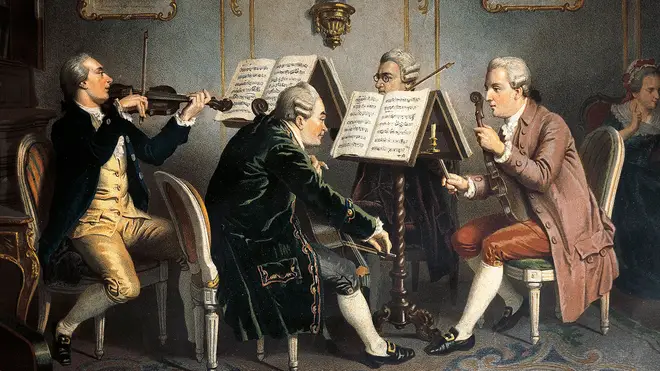Reading time: 4 minutes |
ABRSM Grade 8 Music Theory represents the peak of academic achievement in respect of the graded ABRSM theory structure. It does require a deep understanding of harmony, structure, and practices within the different historical genres, and gives students the tools to discuss music professionally. Here’s what it entails.

Key Topics Covered in Grade 8
Grade 8 builds on the work done at earlier grades, consolidating your skills in harmony and part-writing, and introducing more mature aspects of style and interpretation.
- Advanced Harmonic Vocabulary
- All standard diatonic and chromatic chords are included, with a focus on fluent use in composition and analysis.
- Tasks will often require the practical application of modulation, often through remote keys, using chromatic chords such as diminished sevenths and augmented sixths.
- Baroque Trio Sonata and Continuo Realisation
- One of the most distinctive tasks in Grade 8 is working with Baroque trio sonata excerpts. Students must continue a given melody while working over a basso continuo part (already given). Although you won’t need to realise the figured bass at the keyboard, you must demonstrate understanding of its harmonic function.
- Stylistic Awareness and Historical Practice
- A deeper knowledge of musical styles from Haydn to the present day is required. Familiarity with different idiomatic writing styles—whether Classical or Romantic—will help in melodic and harmonic tasks.
Exam Format and Question Types
The Grade 8 exam focuses on creative problem-solving and advanced musical understanding. Here’s what the main tasks involve:
- Baroque Trio Sonata Continuation
- You will complete a passage from a Baroque trio sonata, continuing the melodic lines of two treble instruments while the basso continuo part is provided throughout. This task assesses your ability to work within stylistic conventions while maintaining logical voice-leading.
- Keyboard Passage Completion
- You’ll be asked to finish an outline of a short passage for keyboard. This question evaluates your familiarity with the style and techniques of composers from Haydn onwards, including harmonic coherence and idiomatic writing for the instrument.
- Melodic Composition
- In this task, you will develop a melody for a specified instrument based on a given opening. This requires fluency in melodic construction, phrase structure, and, if needed, modulation to related keys (such as the dominant, subdominant, or relative major/minor).
- Score Analysis and Realisation
- You’ll analyse short extracts of music, focusing on the underlying harmonic structure, phrase design, ornamentation, and style. This task ensures you have an eye for detail and can apply theoretical knowledge to real-world repertoire.
How to Prepare for Grade 8
Grade 8 represents the culmination of everything learned throughout the ABRSM theory journey. Here are some strategies to ensure success:
- Study Baroque Trio Sonatas
- Familiarise yourself with the works of Corelli, Handel, and Bach, paying attention to the interaction between treble instruments and basso continuo. Practice continuing similar passages to develop your intuition for Baroque voice-leading.
- Hone Your Harmonic Vocabulary
- Ensure fluency in using all diatonic and chromatic chords, particularly in modulating passages. Practise using augmented sixths and diminished sevenths in your writing to make them second nature.
- Analyse Scores Extensively
- Spend time analysing works from Haydn, Mozart, Beethoven, and Romantic composers to understand their harmonic language and phrase structures. Pay special attention to their use of ornamentation, cadences, and modulations.
- Practice Part-writing and Melody Completion
- Regularly practice writing out harmonic passages, melodies, and inner voice movements. This will improve both your speed and accuracy during the exam.
Final Thoughts
The Grade 8 Music Theory exam is a significant milestone, opening doors to advanced musical study, composition, and academic work. This level of mastery equips students with the tools to engage meaningfully with music across eras and styles. While the challenges may seem daunting, the rewards are immense—both in terms of personal satisfaction and musical insight.
Embrace the challenge with confidence, curiosity, and dedication. With careful preparation and a deep engagement with musical scores, you’ll be ready to tackle Grade 8 and take your place among advanced musicians who understand the art of music from the inside out. If you’re looking for personalised guidance to help you master the material, I offer lessons tailored to your individual needs, so feel free to just reach out at any time.


